Less than 200 kilometers of Transnistria from the Eastern EU disconnect the external border between Romania and the Republic of Moldova. However, the separatists ‘ territory is like a foreign world.
Watch the Video
03:23
“Two realities”: the Republic of Moldova and Transnistria
“Do you want to complain about us? Who for please? Are you stupid or do you just like that?” The Transnistrian border policeman laughs. He and his colleagues are guarding a border, there is no international law at all. Transnistria, a narrow strip of land on the Eastern side of the river Dniester, split in 1992, after a brief military conflict between the Republic of Moldova, with Russian help. “No one recognizes anyway.” Not even Russia, which stationed even today, soldiers in the separatist region, regularly carry out military exercises. At the border of the separatists, it transitions is also sometimes open threats: “You give us 200 Euro or we find in your car, drugs, or weapons. What do you prefer? If you don’t give us no money, where we bring you and lock you up. Come on, don’t be stupid, pay and drive!”
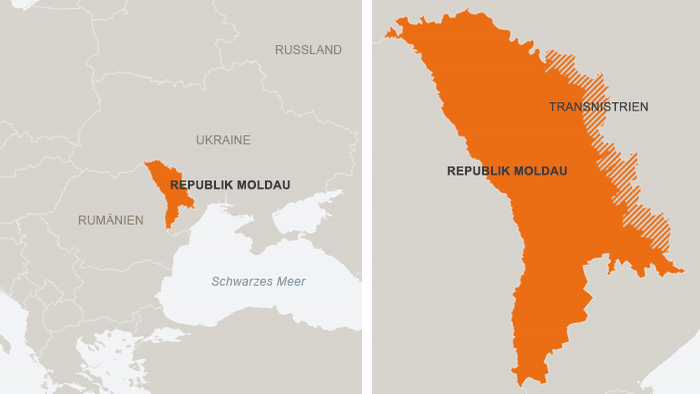
Of this expensive border experience, one of the companions of the DW in the Republic of Moldova says: He works for the NGO Promo-LEX in the capital, Chisinau, and has tried to assist the affected travellers. Its 200 Euro the man has seen never again. The NGO stressed that in the last few years, several cases of this kind.
Arrest on the open road
The arbitrariness of the separatists ‘ territory Alexei Mocreac knows only too well. 30 days he spent in prison, without any legal basis. “In a single cell, we were 36 people, we had to share the food, with only six spoons and six small bowls,” he says. In between, he makes pauses and takes a deep breath – he takes a lot of strength to tug at the gear shift of the age-old German car. Four times he had been arrested, “just like that, on the open road,” he recalls. He didn’t allegedly respects the “state order” of Transnistria – that is, the right of a state, the there is not legally. “Every Time I was left without further explanations again. You even wanted to, that I pay for the stay as I would have been in the Hotel!”
Alexei Mocreac comes from the small town of Grigoriopol, which is located in Transnistria. As the beginning of the 1990s, the war broke out, he crossed the river Dniester in the direction of the West, and fought on the side of the Republic of Moldova against the Transnistrian separatists.
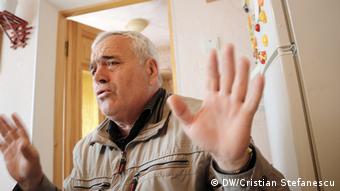
Alexei Mocreac spent 30 days in jail
At that time he was a young man of 33. He lost his best years, many of our comrades, and at the end of the war. Long was he separated from his wife and two children, but at some point he couldn’t stand the longing and returned home – to Grigoriopol in the Transnistria, where he was later arrested several times. Even today he is still politically active and advocates for the Reintegration of Transnistria in the Republic of Moldova. Of the politicians in the Moldovan capital of Chisinau, he is disappointed: “The to always be.”
NGO: Unexplained deaths and torture in Transnistrian army
More than 20 years after the war, and shortly after the annexation of the Crimea by Russia in 2014, Transnistrian militias were suddenly back in front of the doors of the people, tells the war veteran Alexei Mocreac. “They asked: Where are the boys? The aim was to find as many young men for the Transnistrian army.” In the small Republic proclaimed, with around 500,000 inhabitants, the army is an employer of choice. “In the past, the boys ran away in front of the army, but now many of the military want to have a grade that brings secure salaries and pensions,” says Alexei Mocreac. “But there are exceptions, of course, and who refuse recruitment, risking fines and sometimes even jail.”
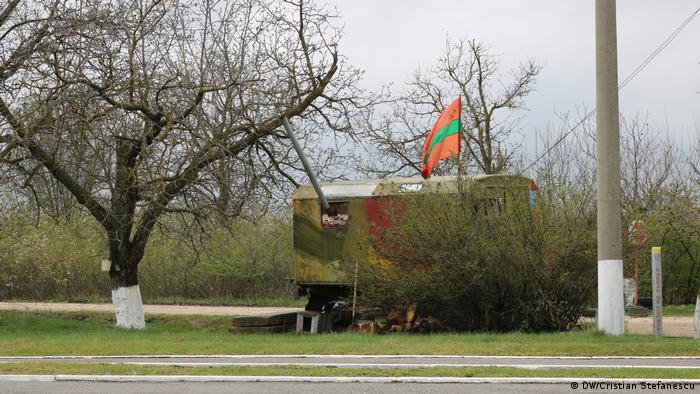
An observation post of the Transnistrian army
Basically, the young recruits in the army would be treated anyway, often, as in the prison, adds the Veteran: “you will be humiliated, beaten, and even tortured. Some commit suicide because they can’t stand that.” The NGO Promo-LEX, Chisinau is trying to deaths and torture in Transnistrian army to educate. Thanks to this commitment, a number of cases have come before the European court of human rights. “However, the Transnistrian authorities benefit from the fact that you can basically none to punish,” says the NGO. The Republic of Moldova has Transnistria in legal issues no influence on the TRANS, and the Transnistrian leadership to respond to their Non-recognition by ignoring international institutions completely. Russia also rejects any responsibility, although the European court of human rights Istria, the Regime in TRANS-as a puppet of Moscow has referred to.
Romanian passports as a Ticket to the West the EU
For most of the “boys” in his home town of Grigoriopol, the question of recruitment, not more, for the Transnistrian army anyway told Alexei Mocreac. Because you are already drawn into the EU. The great majority of the inhabitants of the Republic of Moldova is Romanian-speaking, almost the entire area belonged to before the Second world war to Romania. Who is of Romanian origin, too, can get today, the citizenship of a neighbouring country, which belongs since 2007 to the European Union and therefore EU citizens. In Transnistria, approximately 60 percent of the citizens are Russian-speaking and have no Romanian roots, however, Alexei Mocreac, also of Russian – or Ukrainian-born “boys reported Istria” from TRANS -, whose application for the Romanian citizenship was successful. The new passport was the Ticket in the rich West of the EU.
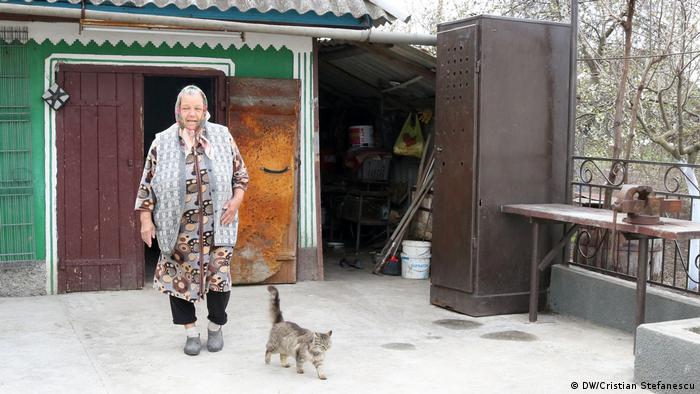
Feodosias daughter moved to Germany
Not only the men migrate. “My daughter is in Germany,” says Feodosia, who lives in the village of Varnita. From the river Dniester is just the Remains of the old tracks that lead nowhere, and a dilapidated house, overgrown by plants, in which the children play Catch. The bullet holes still tell today from the war in the 1990s. On the opposite side of the river, the trenches are to be seen, from which the separatists then shot. “Boom, boom, boom – so it went on, about 120 Times,” recalls the 70-year-old Feodosia. “I can’t remember exactly how long we are at that time in hiding remained for an hour, maybe two…”
“In the Soviet Union we were all equal, now there’s anarchy”
Your village Varnita is located today in a buffer zone, in the immediate vicinity of the border, there is not legally. It is under the joint control of the Moldovan and the Transnistrian authorities – under the watchful eye of Russian soldiers, who are referred to Transnistria as “peacekeepers”. Feodosia gets her pension from Chisinau, but the taxes and bills that you paid for, in part, to the Moldovan administration, part of the Transnistrian.
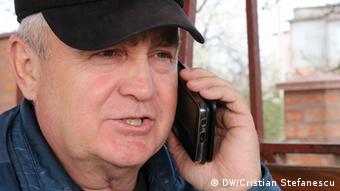
Ivan Pascanu like to remember the Soviet Union
In the vicinity of Feodosias village, just a few meters from a border crossing of the Transnistrian separatists, Ivan Pascanu opened a small Shop. At one of the tables with plastic chairs that stand in front of it, he speaks of the old times, when the Republic of Moldova belonged to the Soviet Union. “In the Soviet state, we were all the same. The company had a wealth of the soul, because there was an ideology.” Today’s rule, however, only the “anarchy”. Also, the quality of education in the Soviet Union had been significantly higher. Ivan Pascanu, an architect by trade, looks with sympathy in the direction of Russia, but his children he wants to send to the Western neighboring country of Romania in the school: “In the EU, everything is kind of extraordinary.”
Reduced gas prices will make life more bearable
A connection to the European Union by their own children, the learn, live and work, has also Feodosia. But you can not imagine to ever move their daughter to Germany: “In the West would treat me as second-class people.” Russia makes her modest living on the periphery of Europe a little more bearable: by strongly reducing the gas prices. These apply to the residents of Transnistria, but also for Feodosias village in the buffer zone.
In one of the poorest regions of the continent are addressed pro-European or pro-Russian sympathies are often so simple criteria such as gas prices. The policy has Istria, the inhabitants of the breakaway TRANS-and the whole of the Republic of Moldova already cost too much. Sometimes even human life.